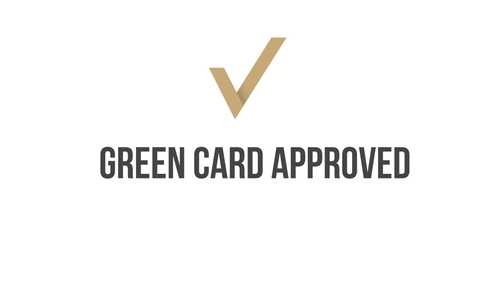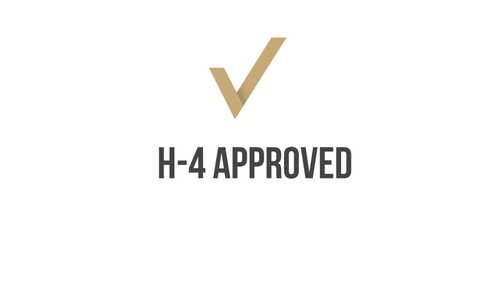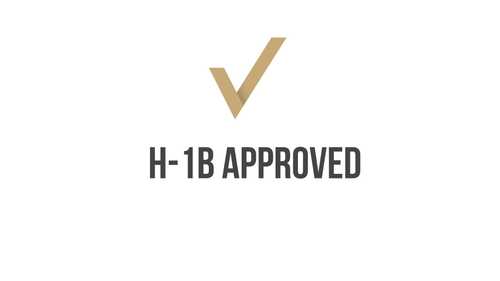Introduction: E2 Visa Business Plan
Securing an E2 visa can be one of the most exciting yet nerve-wracking journeys for an aspiring entrepreneur or investor who wants to expand their presence in the United States. E2 visa offers a unique opportunity to live and work in the United States while building your dream business. However, it is easier said than done as it requires rigorous preparation to pass the stringent E2 visa requirements. One of the most notable requirements for acquiring an E2 visa is a compelling E2 visa business plan.
A key component of the E2 visa application is a well-crafted business plan, which must convincingly demonstrate the business’s potential to succeed and contribute to the US economy. Beyond the legalities, the process involves occasional anxiety about venturing into the unknown of how to create an E2 visa business plan. If you’re considering applying for an E2 visa, this article will give you an idea of the key elements that must be part of your business plan.
Understanding the E2 Visa: What is a Business Plan for an E2 Visa?
The E2 visa allows investors from treaty countries to work in the United States by establishing or investing in a business. Every successful application includes a well-crafted business plan outlining your investment enterprise and demonstrating your visa eligibility.
The E2 visa business plan is a roadmap for immigration offices that summarizes the business, showcasing its potential to generate significant revenue and forecasted contribution to the US economy. The plan usually includes financial projections, market analysis, operational strategies, and an executive summary. It is important to note that the E2 visa business plan must prove that your investment meets the E2 visa requirements.
A strong business plan for an E2 visa application is not just a formality – it’s the narrative of your vision, supported by numbers, research, and strategy. It showcases your commitment to the enterprise, outlines your investment strategy, and establishes the potential economic benefits of your business. The US government uses the business plan to assess whether the investment is substantial, legitimate and if the venture is likely to succeed. The E2 visa business plan also needs to include vital information about you, specifically, your credentials that demonstrate your qualifications as an investor and your ability to successfully support and manage your business.
Remember that you will be asked to present your business plan during an interview with the consulate officer as part of your visa application. The officer will use the information and business plan you provided to decide whether you are qualified for the E2 treaty investor visa. Hence, a poorly written business plan for an E2 visa could result in rejection.
I offer confidential 30 minute & 1 hour consultations.
Schedule a consultation
Why the E2 Business Plan is Crucial for an E2 Visa
US immigration officers scrutinize E2 visa applications to ensure they meet specific requirements. Your business plan must prove the following:
- Substantial Investment: The investment should be significant relative to the business type. The E2 visa requires the investment to be “at risk,” which means that you will not be able to recover the money invested if the company faces losses or difficulties. The investment being at risk will demonstrate that you are committed to growing your US business.
- Non-marginal: Prove that the enterprise has the ability to operate and will generate more than enough profit to support you and your family’s minimal living expenses and make a positive contribution to the US economy.
- Job Creation: The business must create jobs for US citizens or residents, contributing to the local economy. This highlights growth, expansion, and sustained economic impact over time.
Meeting these E2 visa requirements business plan criteria requires precise planning, market research, and realistic financial projections. A business plan isn’t just about ticking boxes – it’s about telling a story that inspires confidence in your commitment and capability.
How Much Does an E2 Business Plan Cost?
E2 business plans vary in cost depending on the service provider who writes them. Our firm has an exclusive agreement with a business advisory firm that prepares our business plans for all of our clients for a reduced fixed fee. Alternatively, you may be able to obtain business plan templates for E2 visa online. Generally, in my experience, I find that a comprehensive business plan written by professionals increases the success rate of an E2 visa application. The cost of creating an E2 visa business plan depends on several factors, including the service provider used to draft the business plan as well as the business’s complexity, the level of detail required, and the experience of the business plan writer.
What is the Best Business for E2 Visa?
There is no specific business type that’s best suited for an E2 visa. If you are curious about this topic in more detail, we have an entire article dedicated to “best business” for an E2 visa. Instead, any business can be the best if it meets the E2 visa requirements. The business’s success will depend on your skills, interests, investment capacity, and market demand. To qualify, the business must be a real and operating enterprise that generates enough income to support you and your family while creating jobs for US workers. Common successful business types for E2 visa applicants include franchises, which offer proven models and brand recognition, retail in hospitality businesses in tourist areas, such as Miami or Orlando, Florida; service-based businesses with low startup costs; retail stores in high-demand locations; and health and wellness businesses catering to the growing interest in fitness and healthy lifestyles. Online e-commerce businesses present opportunities due to low fixed costs and high demand in the US market. This is not an all-inclusive list. In fact, I have worked with so many E2 businesses that do not fall into these categories.
When selecting a business, consider your skills and experience to ensure competence and credibility. The investment should meet the “substantial investment” requirement and should show potential for scalability and profitability. Market needs are another key factor, with some industries being location-specific, such as finance in New York, hospitality in Florida, and technology in California. The ideal business is one that aligns with your background, meets the visa criteria, and has growth potential, ensuring long-term success. Crafting a simple E2 visa business plan to compare businesses may help determine which venture is best for you.

Can you have a LLC on an E2 Visa?
LLC is a Limited Liability Company, a flexible business structure in the United States that combines the benefits of limited liability protection offered to corporations with the simplicity of a partnership or sole proprietorship. It is a popular choice for entrepreneurs and small business owners because it provides liability protection while being relatively easy to maintain and manage.
To answer the question above, yes, you can form and operate a Limited Liability Company (LLC) on an E2 visa, provided the business meets the visa’s requirements. An LLC is also popular for E2 visa applicants due to its flexibility, limited liability protection, and favorable pass-through tax treatment. To qualify, at least 50% of the LLC must be owned by nationals from a treaty country. The E2 investor visa applicant must also direct and develop the LLC. Passive investments held through an LLC are not eligible for an E2 visa.
The formation process of an LLC involves filing Articles of Organization with the state, preparing an Operating Agreement, and maintaining detailed records to support the E2 visa application. LLCs are pass-through entities for tax purposes unless they elect to be taxed as a C corporation, meaning that profits and losses are reported on the owner’s personal tax returns. The LLC structure is flexible and can be used for various businesses, including service-based ventures, retail stores, franchises, and online businesses. Overall, an LLC offers several benefits for E2 visa holders, including liability protection, management flexibility, and ease of maintenance. However, based on my experience setting up E2 company structures, careful planning is necessary to ensure a proper investment and company structure is in place. The goal is to have a structure that provides liability protection to the investor while minimizing tax consequences and still rendering the investor eligible for an E2 visa.
Key Elements of an E2 Visa Business Plan
It’s not uncommon for investors to feel lost and unsure of how to begin writing their E2 visa business plan. Others may search the internet for a guide on how to write a business plan for an E2 visa or a business plan template for E2 visa. Although E2 visa sample business plan templates can simplify the process, especially for first-time applicants, it is necessary to be careful in using such tools as they may leave out essential details vital for your E2 visa application process. Tailoring any template to neatly describe your business is critical to ensure its effectiveness.
Your business plan must be tailored to your business’s nature, highlighting your goals, objectives, and business forecast. It should exhibit how your investment is sufficient for the company’s operation. Financial projections should highlight the profitability of the business and its economic contribution to the country.
To meet the stringent standards of the E2 visa application, here’s a sample guide to writing an E2 visa business plan. Please note that not all E2 business plans follow this format. We are providing this for illustrative purposes so that you can see what information generally goes into a plan.
1. Executive Summary
The executive summary provides an overview of the business, such as its name, location, industry, objectives, and your role as the investor. It should concisely describe the industry, business model, mission, vision, and purpose of the E2 visa application. This section aims to immediately capture the reader’s attention and convey the essence of your vision.
2. Business Description and Objectives
This business plan section is crucial for providing a comprehensive overview of your business and its goals. It establishes the foundation of the enterprise by explaining its nature, purpose, and relevance in the chosen market. Highlighting the following:
- Industry Analysis: This subsection demonstrates your understanding of the industry your business operates in, including current market trends, opportunities, and its competitive landscape. Under this subsection, you must identify your direct and indirect competitors, discuss their strengths and weaknesses, and how your business will differentiate itself from others.
- Business Model: This subsection will describe how your business will function, generate revenue, and serve customers. It includes sourcing suppliers, inventory management, product delivery, customer relationship management, and revenue streams.
- Products/Services: Detail what products/services you offer, how they fulfill a market need, and what sets them apart from your competition. Focus on factors such as quality, pricing, and product innovation.
3. Market Analysis
A robust market analysis is crucial and should demonstrate your understanding of the market you intend to enter. This section should be backed up by data-driven insights to assure the immigration officials of your intention and capability to contribute to the US economy, which includes:
- Target Market: This subsection defines your ideal customer base and identifies the characteristics and behaviors that drive them to purchase your product or service.
- Competitive Analysis: This part focuses on understanding existing competitors in your business industry and identifying opportunities for your business to stand out.
- Market Potential: This section highlights the use of graphs and charts to illustrate data showcasing demand for your products or services and financial growth opportunities in your chosen market.
Being able to perform market research and analysis showcases your preparedness and commitment as an entrepreneur.
4. Organizational Structure
This section outlines the company’s management and employment plans, including:
- Ownership Structure: Clarify ownership percentages and roles. One requirement of the E2 visa is that the investor owns at least 50% of the business.
- Key Personnel: Provide a brief role description of essential team members.
- Hiring Plans: Establish how many jobs you plan to create, their expected salaries and benefits, and types of positions, whether full-time or part-time.
4. Investment Breakdown
This section should establish the substantial investment and how it will be used. This may include:
- Investment Amount: State the total capital invested and break down its allocation – equipment, inventory, salaries, lease.
- Source of Funds: Explain where the investment funds originated. The origin of the funds must be verified to be legitimate and follow E2 visa investment criteria.
This transparency helps ensure you meet the E2 visa requirement of substantial investment.
5. Operations Plan
This portion will detail how the business will function on a day-to-day basis, including logistical, physical, and technological aspects of your operations. This section will give immigration officers a picture of your business as viable and well-organized.
- Location: Describe your business premises and facilities and their advantages.
- Equipment and Technology: List down the tools necessary for daily operations.
- Suppliers: List suppliers who will be your primary source of raw materials or services. Include a list of backup suppliers who can help if your primary source is unavailable.
- Processes: Explain how you will deliver products or services to customers, including the hours of operation and how they align with customer needs.
6. Economic Impact
This section must prove that your business will contribute to the US economy by creating jobs, generating tax revenue, and contributing to local business ecosystems. This section will reassure immigration officials that your business is not marginal and will generate value to support beyond minimal living expenses.
7. Financial Projections
A critical component of any business plan for E2 visa is a detailed financial section that will help to provide evidence that the business will be profitable and sustainable. It is a foundation for setting sales targets and pricing strategies.
- Profit and Loss Statements: Provide a profit and loss forecast of the business’s revenue, expenses, and profits for at least 3 to 5 years. It showcases whether the business is expected to be profitable and how quickly it can achieve profitability and sustain operations over time.
- Cash Flow Analysis: This subsection predicts how the money will flow in and out of the business. It ensures that the business will remain financially stable even in challenging times.
- Break-Even Analysis: This tool will determine the point at which the company’s revenue equals its total costs, which causes neither loss nor profit. This indicates how much revenue is needed for the business to sustain itself. The key components are:
- Fixed Costs: These remain constant regardless of the production level, such as rent, salaries, and insurance.
- Variable Cost: These costs vary with the production level or sales volume, including the raw materials used in products, packaging, and delivery services.
- Selling Price: This pertains to the amount charged to customers for each unit of product sold.
Many applicants include a 5-year projection sample in the E2 visa business plan to offer clarity and confidence, showcasing that the business can sustain itself and generate income that can impact the local economy.
8. Exit Strategy
Some business plans will describe the exit plan if there is one. This is a planned approach for investors or business owners to leave their investments if the business doesn’t perform well. This outlines how investors will reduce or end their stake in the business, typically by selling their shares, transferring ownership, or closing operations. This strategy is essential for both startups and established companies, as it provides a clear roadmap for transitioning ownership and handling future uncertainties in the business.
I offer confidential 30 minute & 1 hour consultations.
Schedule a consultation
Tips for Writing a Strong E2 Visa Business Plan
- Be Clear and Specific
- Use concise and measurable goals. Avoid jargon and overly technical language. Consular officers should easily understand your business concept and its viability.
- Use Accurate and Realistic Projections
- Inflated or unrealistic financial figures will compromise your credibility. Base your numbers on market research and industry benchmarks.
- Include Supporting Documents
- Supplement your business plan with visuals like graphs, charts, and tables to make your projections and strategies more straightforward. This will also help the adjudicator to be engaged in your business.
- Focus on Economic Contribution
- Highlight how your business will benefit the US economy through job creation, tax revenue, and local spending.
- Tailor the Business plan to the E2 Visa Requirements
- Emphasize active management, substantial investment, and the non-marginal nature of the business.
- Seek Professional Guidance
- As previously stated, our firm has an agreement with a business advisory practice that writes all of our client’s business plans. I find that professionally written business plans tend to highlight the relevant parts of a business which helps with the underlying E2 visa application.
Common Mistakes to Avoid When Writing an E2 Visa Business Plan
When learning how to write a business plan for E2 visa, take note of the following common mistakes to avoid:
- Omitting Key Details
- Missing sections or vague descriptions can raise doubts about your preparation and commitment. Every section must be thoroughly explained to demonstrate your eagerness to manage a business.
- Ignoring the Job Creation Requirement
- A business plan that doesn’t include a hiring plan may be rejected because it fails to meet the visa’s economic contribution criteria.
- Submitting a Generic Business Plan
- A plan that is not customized to your specific business or industry can come across as unprofessional.
- Failing to Update the Plan
- If your situation changes during the application process, ensure that the business plan reflects current information.
Seeking Professional Support
When in doubt and feeling overwhelmed, consider seeking professional assistance. There is a reason all of our firm’s business plans are prepared by a business advisor. Business advisors and consultants specializing in such services can help prepare a quality E2 visa business plan. Some offer E2 visa sample business plans or can even create a customized E2 visa business plan for you. This support can reduce stress and increase your application’s success.
Conclusion: Your dream, Realized
An E2 visa business plan is more than just a document – it’s your ticket to securing your E2 visa and a successful future as an entrepreneur in the United States. While the journey may involve challenges, it also offers great rewards: the chance to grow your business, create a lasting impact, and secure a brighter future for you and your family.
By crafting a detailed, realistic, and tailored business plan that meets the E2 visa requirements, you can demonstrate the viability of your investment and your commitment to directing and developing your E2 business. With thorough preparation, attention to detail, together with professional guidance, your business plan can pave the way for E2 visa approval and the opportunity to build a thriving business in the United States.
I offer confidential 30 minute & 1 hour consultations.
Schedule a consultation
Our Legal Services
Crafting the perfect E2 visa business plan is more than just numbers on a page. It’s about telling your business’s story in a way that convinces immigration officers of its viability and potential. Our firm specializes in developing strategic and holistic solutions for foreign investors.
We help in forming the right company structure and advising on the investment strategy. We use a business advisory service that prepares all of our E2 visa business plans tailored to meet E2 visa requirements while showcasing our clients’ vision, growth potential, and job creation impact. We take the guesswork out of the process, ensuring your plan aligns with immigration regulations and strengthens your case for approval. Whether you’re launching a new venture or expanding an existing one, we’re here to help you build an E2 visa plan that works.
Let’s make your E2 visa journey a success! If you would like to schedule a consultation with me, Adrian Pandev, an experienced immigration lawyer, follow the link and click on “Schedule a Consultation.” You can also reach us via email at [email protected], or call us at (646) 354-3780.
During your consultation, I, Adrian Pandev, an experienced E2 visa attorney, will review your goals and provide an honest assessment as well as customized plan for your case, and guidance regarding your next steps.
Disclaimer: This blog article is provided by Pandev Law, LLC for general educational and informational purposes only. Although this article discusses general legal issues, it does not constitute legal advice nor does it establish an attorney-client relationship. No reader should act or refrain from acting on the basis of any information presented in this article, or elsewhere on this website, without seeking the advice of appropriate legal counsel, or other professional counsel, licensed in the relevant jurisdiction. Pandev Law, LLC expressly disclaims any and all liability with respect to any actions taken, or not taken, based on any content of this article or website. This blog article may constitute attorney advertising. Prior results do not guarantee a similar outcome.














